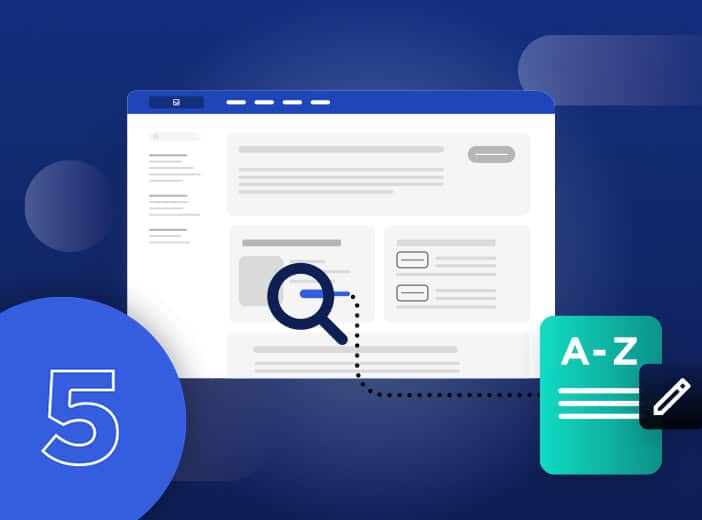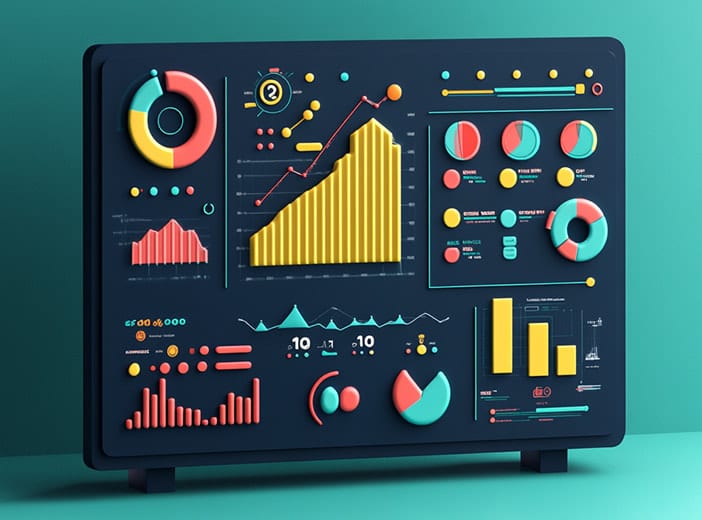How data drives co-innovation in your ecosystem
In today’s complex world, no one player has all the answers. Collaboration is therefore key to driving innovation, meeting customer needs and solving global mega-challenges in every sector. Drawing on the experiences of our customer Schneider Electric, our blog therefore examines the concept of co-innovation, and why data democratization is essential to its success.

Today we live in a fast-moving world and face a range of mega-challenges in multiple areas. For example, we need to limit climate change, decarbonize energy, and meet the food and health requirements of a growing global population. At the same time people’s expectations, as both consumers and citizens, are changing fast, and have to be met.
All of this requires constant innovation – but as Peter Weckesser, Chief Digital Officer at our customer Schneider Electric points out in this blog, “No single company alone can possibly innovate fast enough to keep up.” Essentially, solving challenges requires co-innovation, with players across the ecosystem collaborating to find solutions.
What is co-innovation?
Co-innovation brings together a range of partners, from customers and suppliers to the wider community (such as research institutions and universities), who all share resources and work together on specific problems. Often co-innovation involves companies that normally compete with each other, but see the benefits in co-operating in a particular area to benefit everyone involved.
As problems get more complex, and the need to solve them more pressing, co-innovation is being embraced by more and more organizations in a whole range of sectors. There are a range of structures for co-innovation, from long-term formal partnerships to more agile, ad hoc relationships that last just weeks or months.
Organizations gain three key benefits from co-innovation:
- Faster innovation
- Faster scaling
- Faster time-to-market
In turn these benefits deliver greater revenues and growth for everyone involved, making it a win-win scenario for all partners.
Why data democratization underpins successful co-innovation
In today’s digital world, co-innovation is fueled by seamless data sharing. Making the right data available to partners enables collaboration to create new services and products, both through using data in new ways and combining it with other datasets to create deeper insights.
As Peter Weckesser of Schneider Electric points out, this collaborative process is enabled by open Application Programming Interfaces (APIs), sharing of datasets, and the opening of platforms to third-party innovations. Let’s look at each of these building blocks in turn.
Open APIs
APIs are designed to remove the complexity of stitching together software systems from different vendors, enabling applications to exchange data and talk to each other, without requiring time-consuming manual intervention. Essentially they industrialize data sharing, making it possible to easily incorporate data from different sources into a service. For example, companies can add geographic datasets (such as maps) or anonymized data on mobile phone use to their applications, giving deeper insight and enabling new applications.
Open APIs empower development teams within your ecosystem to industrialize the creation of products and services powered by your data. For example, the Schneider Electric Exchange ecosystem built on our platform, offers APIs to customers that allow them to build their own applications and create new services.
Datasets
Clearly sharing data is key to co-innovation. However, simply opening up data and making datasets available is not enough to drive collaboration. Four factors are vital:
- It has to be the right data that people in your ecosystem want to work with
- It has to be accurate, high-quality and up-to-date
- It has to be clearly described so that users understand what it covers and how it can help them.
- Users have to be engaged and encouraged to reuse data
A good example of where all these conditions are being met is at energy network operator UK Power Networks. It created an open data portal for its wide range of stakeholders (which include local authorities, housing developers, consumers and researchers), spending time listening to their individual needs and running a beta program with 500 users. This allowed UKPN to prioritize the datasets it opened and shared, and how they could be accessed. It invested in ensuring that it was easy to understand what datasets contained, and reuse information in a number of ways. Altogether this has enabled co-innovation, such as around future energy scenarios as the company moves towards a Net Zero future.
Open platforms
To share datasets and APIs companies need to make them easily available and discoverable to their partners. This is best achieved through a central data experience portal that contains all datasets and allows them to be accessed directly, through APIs or via compelling data experiences, such as visualizations. Platforms have to be simple to use by anyone, no matter their level of data skills, and be designed to encourage finding and sharing data if they are to truly drive collaboration and co-innovation.
Co-innovation in action - Schneider Electric
Schneider Electric is leading the way when it comes to co-innovation empowered by data sharing. As a company that provides digital energy and automation solutions for efficiency and sustainability it has clear goals. It wants to help optimize the use of energy and resources and offer its customers solutions for meeting their challenges around energy efficiency and sustainable development.
To achieve this it has focused on harnessing its data, beginning with an internal data portal aimed at its 130,000 employees in 100 countries. However, it knew it could go further and embrace co-innovation through its Exchange platform. This provides a marketplace of data services for collaboration and networking between players in the energy sector. As well as enabling co-innovation the data marketplace allows Schneider Electric to commercialize data services and create new revenues.
The Exchange platform is built on:
- a wide variety of resources, including APIs, analytics and datasets to improve digital offerings
- digital tools and expertise to adapt solutions and accelerate their marketing
Partners in the ecosystem can also share ideas and concepts through a powerful collaborative cloud platform and access a network of solution providers in the energy sector.
To encourage co-innovation Schneider Electric has made it simple to reuse data. It can be easily accessed through asset catalogs, while the “Facility Expert KPI” option allows any partner to access the API’s technical documentation. This all encourages reuse and sharing across the partner ecosystem.
All of this makes co-innovation the default operating model for Schneider Electric and its partners. As Peter Weckesser points out, the benefits are enormous, “As we observe the outcomes of partnerships enabled through Schneider Electric Exchange, we witness how it facilitates this essential mindset of “open for collaboration”, allowing technology partners, ISVs, and system integrators to work together alongside our customers to solve their most pressing energy efficiency, productivity, and sustainability challenges, use case by use case.”
Moving forward, co-innovation is becoming increasingly vital for every organization as it looks to collaborate in a complex, fast-moving and challenging world. Achieving success relies on data democratization, i.e. on high-quality data that can be accessed and consumed seamlessly by all users, whatever their technical ability. Companies therefore need to build innovation ecosystems, underpinned by data if they are to meet their challenges, engage with customers, launch new services and drive new revenues.
Find out more about Schneider Electric’s Exchange platform by reading our full case study on its data marketplace.



